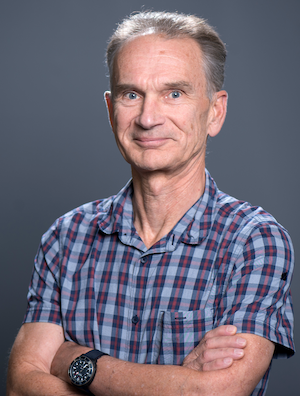Le programme du congrès et le résumé des interventions peuvent être téléchargés ci-après.
Voici une présentation des « Keynote Speakers » de la conférence:
 | Btihaj Ajana is a Professor of Ethics and Digital Culture at the department of Digital Humanities at King’s College London. Her academic research is interdisciplinary in nature and focuses on the ethical, political and ontological aspects of digital developments and their intersection with everyday cultures. She is the author of Governing through Biometrics: The Biopolitics of Identity (2013) and editor of Self-Tracking: Empirical and Philosophical Investigations (2018),Metric Culture: Ontologies of Self-Tracking Practices (2018) and The Quantification of Bodies in Health: Multidisciplinary Perspectives (2021). Ajana is also a filmmaker and uses film as a way of exploring social issues while bringing scholarly ideas to wider audiences. Her most recent films include Quantified Life(2017); Surveillance Culture(2017); andFem’s Way (2020). Keynote Speech: Playing with Metrics: Self-tracking as Personal Science In this talk, I discuss the ways in which Quantified Self practices and their data driven approach can be considered as “personal science,” a term first introduced by Martin and Brouwer in early 1990s and recently adopted by the Quantified Self community to describe its self-tracking activities and objectives. In doing so, I revisit some relevant arguments put forward by the philosopher, Hans-Georg Gadamer, vis-à-vis the value of the personal and hermeneutic dimension to understanding aspects of health and appreciating the limits of traditional medical methods and their generalising approach. Drawing on relevant examples, I discuss how self-tracking can be seen, at once, as a way of reclaiming autonomy and control over one’s health and physical activity as well as a form of outsourcing decision-making to technology itself. This discussion leads me to differentiate between active and passive self-tracking, and between members of the Quantified Self circle who build their own tools and the general users who rely on the commercial tech solutions available on the market. Ultimately, I suggest that the Quantified Self community can act as a “guru” for mainstream self-trackers by nurturing a critical and inclusive approach to technological development and use, which can enable users to be involved in the means of production and become experts rather than just users. |
 | Nicolas Besombes is an Associate Professor at the Sports Faculty of the University of Paris, Nicolas‘ research is focused on sports’ digital practices and more specifically since his PhD thesis on competitive gaming and esports. Through a transdisciplinary approach at the crossroads of the sociology of sport and the game studies, his research topics are related to esports and physicality, esports and public policies, esports and health, and esports and diversity. In parallel, he also is the Vice President of the French National Esports Association (France Esports) which brings together all the associative and economical esports stakeholders in France, and which is the main contact of the public authorities. Lastly, he also is advising the Olympic Movement about its esports strategy, he has co-founded the French Speaking Association for Esports Studies and Research (AREFE), and is a founding board member of the Esports Research Network (ERN) ». Keynote Speech Esports and Virtual Environments: the realm of data? Esports refers to organized video game competitions (Jenny et al., 2017). With the appearance of streaming platforms at the turn of the 2010s, esports has gone from a niche practice to a true generational mass spectacle (Besombes, 2015). Mirror of our digitized societies and a product of the digital revolution (Scholz, 2019), esports is intrinsically dematerialized and virtual, and a particularly fertile ground for data collection: optimizing the performance of high-level players, predicting match results, spectator experience or even artificial intelligence, are some of the applications already underway in the esports world. The use of data in this sector stands out clearly in two areas: firstly technologically, with the development of different applications and systems designed to enrich and improve the gaming experience (users and fans), and secondly economically, where what is sought is both the growth and development of this new market. The first area will be the focus of the presentation, while keeping in mind that the boom of Big Data is not without raising some practical and technological questions: what relevant data to collect? with what tools? How to process them? And finally, how to interpret and analyze them? |
 | Bengt Kayser is a retired and an emeritus professor at the Institute of Sport Sciences of the University of Lausanne in Switzerland. After his medical studies at the University of Amsterdam in the Netherlands he engaged in an academic career in the field of exercise physiology with a special interest in hypoxia. After obtaining his PhD at the Free University of Amsterdam, Netherlands, he worked at McGill University in Montreal, Canada, before joining the University of Geneva in Switzerland. After preparing the merging of the Lausanne and Geneva institutes of sport sciences he worked at the University of Lausanne from 2013 to 2021. His research interests concern the factors limiting endurance exercise performance, altitude medicine and physiology, respiratory mechanics during physical exercise, and the relationship between physical activity, energy balance and health in different settings. Besides these fields he has a keen interest in the ethics of doping and anti-doping, human enhancement, and substance use in general. He has over the last decade published extensively in this field contributing a critical voice to the anti-doping debate, putting current anti-doping policy in a wider societal perspective beyond elite sport only. Keynote Speech: Disentangling sport, exercise and physical activity in a data-driven world In both public and academic discourse the use of the words sport, exercise and physical activity is fraud with conflation and confusion. I develop arguments in favor of a more clear demarcation of the concepts covered by these words. Sport, defined as competitive play according to rules, exercise defined as planned physical activity and physical activity as any muscle contraction leading to an increase in metabolic rate, have, according to such distinct definitions separate, even though partly overlapping roles to play. Taking into account the disruptiveness of digitalization in an increasingly data-driven world, in primary, secondary and tertiary education, in public health efforts, in the public encouragement for participation in sports, or in political discourse, making these distinctions would help to clarify the discussions and could be expected to ease the way for more positive change for the common good. |
Le congrès se déroulement à 100% en ligne.


